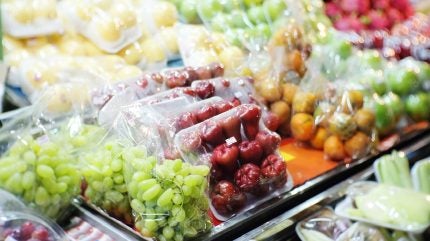
The Waste and Resources Action Programme (WRAP) is advocating for the UK government to consider restrictions on the plastic packaging of uncut fresh fruit and vegetables that are sold in retail.
This initiative aims to help consumers purchase quantities that meet their needs, thereby minimising household food waste, single-use packaging, and saving associated carbon emissions.
This call from WRAP comes as the global food and packaging waste issue demands urgent action.
In the UK, a reported 70% of edible post-farm-gate food waste originates from homes, and fresh fruits and vegetables contribute to the largest share.
Moreover, approximately 70,000 tonnes of single-use plastic are used annually for packing these fresh fruit and vegetables.
To tackle this challenge, WRAP has collaborated with industry partners through the ‘Pathway to Selling More Uncut Fresh Fruit and Vegetables Loose’ programme to increase the sale of loose produce.
The voluntary programme targets that by 2030, half of the sales volume for uncut fruit and veg will be loose in the country.
However, WRAP and partners from the UK Plastics Pact and Courtauld 2030 have identified several challenges in transitioning towards a predominantly loose system.
Consequently, policy interventions are deemed necessary to ensure a fair competitive environment for the sector.
WRAP, a sustainability charity, partnered with Policy Connect, a cross-party think tank, to explore potential formal policy measures that could expedite industry progress towards this goal.
As an outcome of this collaboration, WRAP recommends that the UK government considers a phased approach to policy implementation.
This would, for example, commence with a ban on primary packaging for 21 products identified in WRAP’s research, with specific exemptions and considerations in place.
In September last year, WRAP released a report raising concerns regarding the ambitious reuse milestones set by members of the UK Plastics Pact.



